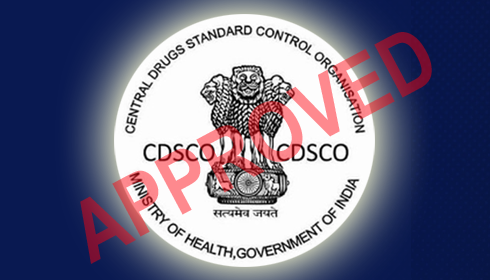
New Drug Approved in Developed Countries do not Need to have Local Trial: CDSCO
India's national drug regulatory body, the Central Drugs Standard Control Organisation (CDSCO) made a crucial announcement, declaring on several categories of new drugs and formulations already approved in the United States, United Kingdom, Japan, Australia, Canada, and the European Union that it will waive local clinical trials. Under Rule 101 of the New Drugs and Clinical Trials Rules, 2019, this action seeks to speed the availability of vital drugs in India.
The CDSCO's ruling covers a wide spectrum of novel medications, including those used in uncommon diseases, epidemic circumstances, and particular defence needs. Waivers will also be taken into account for pharmaceuticals that show notable progress over current therapies as well as gene and cellular therapy products. This policy change is meant to expedite the approval procedure, guaranteeing faster access to essential treatments for Indian patients.
Praising the choice, Anil Matai, Director General of the Organisation of Pharmaceutical Producers of India (OPPI), said it was a progressive one that will help domestic and foreign medicine makers alike. "This action will greatly help domestic and foreign drug producers by accelerating the approval process and enabling faster access to necessary drugs for Indian patients," Matai added. He underlined that increasing access to novel cures depends on India's regulatory system being in line with world standards.
Matai further underlined the strategic relevance of incorporating orphan medications, gene and cellular therapies, and drugs used in epidemic conditions into the waiver. This action, he noted, meets important and unmet medical requirements in India, where long-standing regulatory procedures have sometimes delayed access to modern medications.
To improve patient access to innovative treatments, Matai advised the government to grant these waivers to a wider spectrum of therapeutic categories. Furthermore, it was emphasised that there was a necessity for clarification on the definition and application of the criterion for "new drugs having a significant therapeutic advance over the current standard of care." He said this might set a standard for the acceptance of innovative treatments with great clinical advantages.
Although the CDSCO's ruling marks a major progress, it also begs serious issues regarding the harmony between safety, effectiveness, and fast access. While the waiver of local clinical studies speeds the arrival of new medications, it also puts more duty on regulatory bodies to guarantee that these medications satisfy the highest safety criteria. The long-term effects of this legislative shift on the state of healthcare in India will depend on how successfully these new pharmaceuticals meet the country's medical needs without endangering safety.
Matai ended by underscoring OPPI's will to work with the government to guarantee that Indian patients gain from the most recent medical developments as quickly as possible. He underlined that this is a major turning point in India's attempts to match its legal system with international norms, therefore helping the patients it treats as well as the healthcare environment.